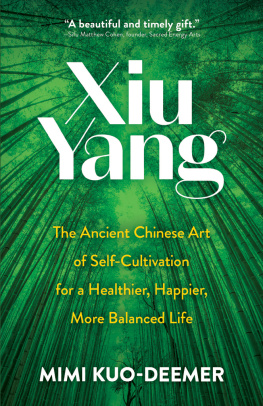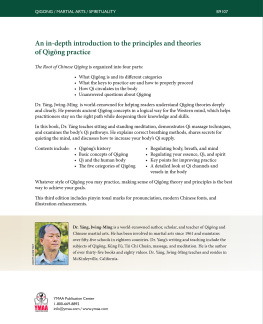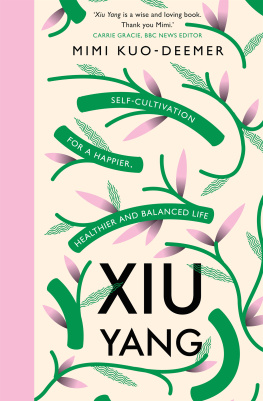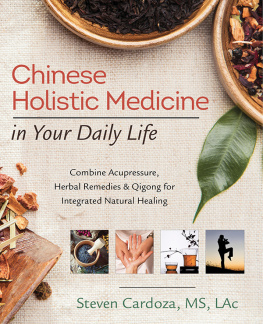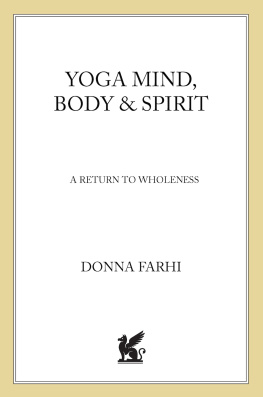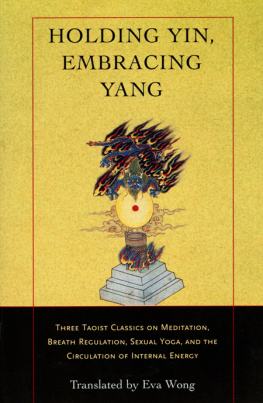
Copyright
Copyright 2019 by Mimi Kuo-Deemer
All rights reserved.
Illustrations by Emanuel Santos, except as noted below.
Diagram on courtesy of the Wellcome Collection.
Bibliographical Note
This Ixia Press edition, first published in 2020, is an unabridged republication of the work first published by Orion Spring, an imprint of The Orion Publishing Group Ltd, London, in 2019.
Every effort has been made to ensure that the information in the book is accurate. The information in this book may not be applicable in each individual case so it is advised that professional medical advice is obtained for specific health matters and before changing any medication or dosage. Neither the publisher nor author accepts any legal responsibility for any personal injury or other damage or loss arising from the use of the information in this book. In addition, if you are concerned about your diet or exercise regime and wish to change them, you should consult a health practitioner first.
Library of Congress Cataloging-in-Publication Data
Names: Kuo-Deemer, Mimi, author.
Title: Xiu yang : the ancient Chinese art of self-cultivation for a healthier, happier, more balanced life / Mimi Kuo-Deemer.
Description: Mineola, New York : Dover Publications, Inc., 2020. | This Ixia Press edition, first published in 2020, is an unabridged republication of the work first published by Orion Spring, an imprint of The Orion Publishing Group Ltd, London, in 2019Title page verso. | Includes bibliographical references. |Summary: For centuries, Chinese leaders and seekers have embraced the art of self-cultivation, xiu yang (sheow-yaang). A simple yet powerful principle, xiu yang fosters the capacity to be fully human and awake, finding balance and peace at home and in the community. Author Mimi Kuo-Deemer leads readers through a combination of practices from meditation and mindfulness to yoga and qigong, offering ancient wisdom to help address contemporary challengesProvided by publisher.
Identifiers: LCCN 2020008530 | ISBN 9780486841724 (paperback)
Subjects: LCSH: Self-actualization (Psychology) | Mindfulness (Psychology) |Medicine, Chinese.
Classification: LCC BF637.S4 K859 2020 | DDC 158.1dc23
LC record available at https://lccn.loc.gov/2020008530
Ixia Press
An imprint of Dover Publications, Inc.
Manufactured in the United States by LSC Communications
84172301
www.doverpublications.com/ixiapress
2 4 6 8 10 9 7 5 3 1
2020
To Aaron,
who brings laughter and love to my life.
Also in memory of Mayling,
who spread positivity and joy at every turn.
ABOUT TRANSLATIONS, LANGUAGE, AND TEXTS USED IN THIS BOOK
ON LANGUAGE: There are two types of English transliteration from Chinese: pinyin and Wade-Giles. In most cases, the worldwide standard of pinyin is used. Exceptions are when the Wade-Giles transliteration has fallen into common use in English, such as tai chi. Traditional, or complex Chinese characters are also used instead of the simplified forms. When referencing Buddhist terminology, Pali is used and, when referencing yogic terminology, Sanskrit is used.
ON TEXTS USED: Many of the textual references used in Xiu Yang come from an ancient, early Daoist text known as Inward Training (Neiye). This fourth-century BCE text is not well known, but is arguably the oldest mystical text in China. Though I also reference other more well-known Chinese classical texts such as the Laozi, or Dao De Jing, Zhuangzi and the Confucian Analects within this book, I have drawn particularly from Inward Training (Neiye) to illustrate the earliest sources and basis for self-cultivation in the Chinese tradition. The mental and physical techniques for self-discipline in Inward Training (Neiye) were aimed at achieving physical health, longevity and spiritual transcendence. In other words, they sought to provide people a means to achieve a happier, healthier and more balanced way of living, which is also the goal of this book.
Roth, Psychology and Self-Cultivation in Early Taoistic Thought, Harvard Journal of Asiatic Studies (1991), p. 611.
CONTENTS

Xiu yang (pronounced sheow yaang) is the ancient Chinese art of self-cultivation. For centuries the aims of xiu yang have been improved health, a long and happy life, and harmony with the natural world. Xiu yang is the bedrock of Chinese healing and spiritual practices. The sages, emperors and spiritual seekers who have embraced xiu yang believed in smoothing out roughness and irregularities until our bodies and minds were nurtured, our energies strengthened, and our spirits integrated and guided by the forces of the natural world. At its core xiu yang asks us: what positive qualities do we wish to cultivate in our lives? It shows us that what we plant and grow can be the best in ourselves, which can also reflect overall goodness and well-being within society, nature and the universe. As an ancient wisdom xiu yang is a practice that we can follow today as a fundamental path towards a happier, healthier and balanced life.
FOREWORD
A seed knows how to grow and flower,
humans have a similar capacity...
A seed does indeed know how to grow and flower yet anyone who has ever cultivated a garden also knows that nature best rewards those who tend to their garden. Tending a garden is a daily task: enriching the soil with manure, watering delicate seedlings, watching for early signs of disease, protecting plants from damaging winds and frosts, and harvesting fruits and vegetables when they are at their peak ripeness. When these tasks are done with careful attention and consistency, it is wonderful to see how the garden glows with vitality and rewards us with abundant and nutritious food. Yet after a few weeks, months or years of neglect, that same garden has a way of turning in the other direction: toward disarray, disease and decay. Tending a garden is not much different from tending ones home, tending a relationship or tending ones health. If we regularly clean and tidy our home, it is a lovely and calming place to live and to share with treasured guests. If we invest time and energy in our relationships, we build enduring connections that have a stronger chance of surviving the tests of time. And nowhere are the results of consistent care more obviously demonstrated than through the presence of good health, mental clarity and joyfulness.
Yet today we face a worldwide health crisis of illnesses and diseases, which are largely the result of unbalanced lifestyle habits, poor diet and plain and simple lack of movement and exercise. Weve been indoctrinated to believe that health and health insurance are the purview of health practitioners, whose responsibility it is to treat our sicknesses and woes once they take hold. Within this cultural context, the simple yet profound message of xiu yang might easily be overshadowed, yet the urgency and relevance of this book will be apparent to anyone interested in cultivating and preserving their physical, mental and emotional well-being. The fundamental message of xiu yang is that to a large extent our health and happiness are within the domain of our own control, should we wish to exercise that sovereignty.
As a practice for smoothing out roughness and irregularity and rekindling our innate wholeness and connection with nature, this offering of xiu yang, presented through a contemporary lens, could not have arrived at a better time. For who among us does not feel the tide-like pull of modern lifes frantic pace from the moment we are awakened by our alarm clock to the moment we come to a skid stop in front of our bed and collapse into an often restless sleep? In between we may wrestle with the overwhelming information indigestion that occurs when we stuff ourselves from morning to night with input from our digital devices, while simultaneously juggling the immediate exigencies of our home, work and family responsibilities. But there is another way of living. This delightful book graciously offers us a view into what that might look like, and how, through simple, practical steps, we can reclaim harmony in our lives.
Next page
